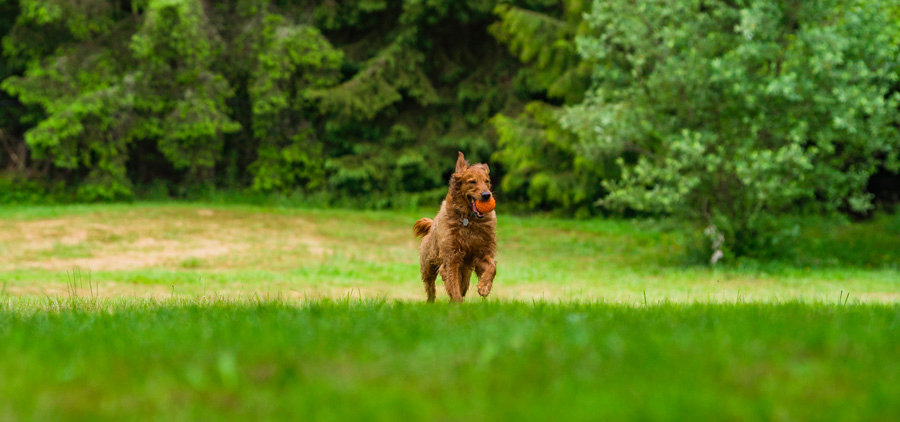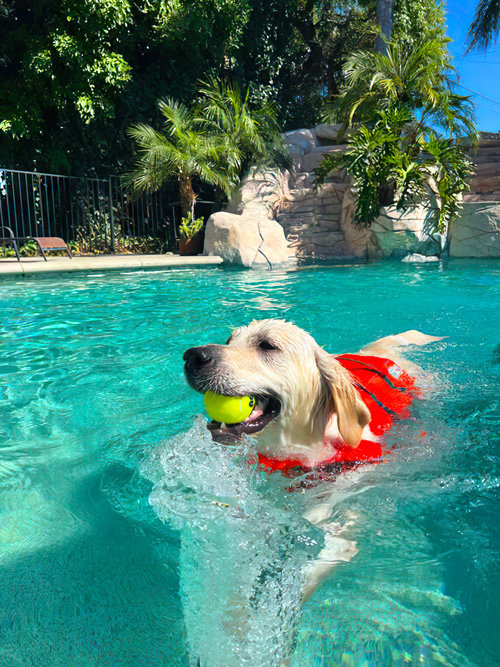The Best Dog Trainers in St. Louis, MO of 2023
Welcome to the St. Louis, MO Sniffspot top dog trainer list for 2023. This is a list of the top dog trainers in St. Louis based on votes from the Sniffspot community and the general public. Over 55,000 votes were used in compiling this list. We have only included the top trainers with sufficient votes and the trainers are ordered in terms of the number of votes received. Trainers that tied are ranked in reverse alphabetical order based on first name. All dog trainers on this list are positive reinforcement only, as defined by no force, fear, intimidation, or aversive methods used. This list is a subset of the broader Top Trainers in Missouri list. To learn more about our dog trainer contest, feel free to view the dog trainer contest post.
Dog training is one of the most important activities someone can do with their dog. Many come to dog training through a specific issue they want addressed, anything from barking to separation anxiety. Some have adopted dogs from animal shelters with an abusive experience and some just have happy puppies looking for everyday life skills. Trainers can help with all kinds of specific skills and issues, from leash manners to territorial aggression to anxiety around skateboards to common puppy challenges. However, what many discover is that working with a trainer is actually a way for a pet owner to deepen their relationship with their dog. The enhanced communication skills that result can increase quality of life, be a rewarding experience, be a social experience and lead to more harmonious relationships. Knowing that one’s dog is having a happier life can dramatically improve peace of mind. As the saying goes: happy dog, happy life. And it extends further than just the dog, to the pet owners. Owner empowerment can actually improve the relationship between owners. And finding the right trainer can make all the difference in the experience.
This list is sponsored by Sniffspot, which is the largest network of private dog parks for rent in the world. Each of the thousands of Sniffspot dog parks are hosted by locals on private land with all private bookings to maximize safety for guests and their dogs. Sniffspot offers various types of dog parks, including fenced, water parks, indoor dog parks, dog beaches and more. Sniffspot has worked closely with dog trainers to create safe spaces for dogs and our top trainer lists are a natural extension of that relationship. You can browse Sniffspot's local dog parks here.
The Best St. Louis, MO Dog Trainers in 2023
Cait Patton

I'm Cait! I've been working with dogs for 20 years now! I have big goals of helping people understand scientific based methods and the benefits of doing so. I have not always been a solely R+ trainer, and I believe my honest was and ability to have open conversations about this has opened a lot of doors to help bridge the misunderstanding of what R+ is and the types of dogs it will work for. I love tackling the misconception that R+ won't work for specific behaviors or breeds. As owner and head trainer at Good Dog Enrichment and Training I love getting to work with a variety of clients and strive to help them meet all their dogs needs and strengthening the bond they have with their dog.
Certifications: CPDT-KA, Fear Free Certified, CGC, Currently studying for PhD in veterinary medicine and behavioral health, working on obtaining CBCC-KA
Services include:
- Aggressive dog training
- In home training
- Protection/guard dog training
- Deaf dog training
- Reactive dog training
- Service dog training
- Herding training
- Off leash training
- Puppy training
- Agility training
More info about service provided: I specialize in utilizing R+ training methods specifically in behavior modification as well as traditional obedience training. I am known for my work with reactive, aggressive, and fearful pups utilizing only R+ techniques. I work with dogs to help learn how to properly play and interact with other dogs. I also teach a variety of dog sport and advanced training skills using only R+. My business (Good Dog Enrichment and Training) is uniquely known for our wide array of services in day training, private lessons, in homes, and classes. In addition, I volunteer 15 hours a week in a partnership with CARE STL working with their long timers to help them get adopted.
Behavioral issue focus: Reactivity and aggression to both people and dogs is my primary focus. I work on helping educate people in understanding core behaviors, not just what they consider problematic. I then strategically work with their vets to create a comprehensive behavioral plan. I teach reactive dog classes as well to further help people understand their reactive/aggressive dog. I only utilize R+ techniques to do so!
Training methods: We always start with a consultation to ensure the dog lands in the right program (day training, private lessons, in homes, or classes). Depending on the severity of the issue, we partner with the dog’s vet to create a collaborative approach. During our first meeting, we identify short term and long terms goals of the owner and help outline a structured behavioral plan which is both realistic for the owner and beneficial for the dog.
Why I became a dog trainer:
I grew up at a dog boarding and training facility! I got my first real job working with dogs by obtaining a workers permit at age 15 and I’ve worked with dogs full time ever since! I ventured into dog training specifically after my stepdad was diagnosed with cancer and was in need of a service dog. I trained my GSD to aid him in mobility and medical
alert. After that I became interested in behavior modification and after a few years working in the balanced realm, began to phase out adversives completely before working intensely with a behaviorist to better understand scientific based techniques and their role in rehabilitating behavioral cases. Immediately after that work, I made the switch to R+ and haven’t looked back!
My favorite part of being a dog trainer: Seeing the dog and their human thrive together. So many people want to have such a strong bond with their dog but struggle to understand how to accomplish that. I also love working with dogs at the shelter and tackling behaviors that might keep them from finding a forever home. With the partnership with our local animal shelter CARE STL, We started a program called 'Rescue Me'. It targets specific dogs who have been at the shelter for longer stays. We've been able to successfully train, and home some of the shelters longest stay residents!
My #1 dog training tip: Look at things from the dogs point of view! When we slow down to think what they might be thinking or what is causing them to behave a certain way, it greatly impacts our understanding of the specific dog and how we can adjust our training to benefit them!
Service areas: St. Louis (city, county, and areas of Illinois)
Website: https://www.gooddogstl.com
Jody Epstein

I have a masters degree in behavior and am proud to be the only board certified applied animal behaviorist in the eastern half of Missouri. I also hold my Certified Behavior Consultant Canine and Certified Professional Dog Trainer (knowledge assessed) certifications, and I am a Fear Free Certified Professional dog trainer as well. I have been training professionally for 16 years.
I served one year as the behavior manager for small humane society. I moved to Missouri in 2018 to take on the role of Head Training Instructor at the Academy of Pet Careers - the only full-time, hands-on positive reinforcement dog training trade school in the country that we know of. After earning my ACAAB in 2021, I shifted my focus back to seeing private clients so that I could help as many people struggling with behavior challenges in their homes as possible. It has been my pleasure to serve the greater St. Charles area these past two years.
Certifications: ACAAB, CBCC-KA, CPDT-KA, FFCP
Services include:
- Aggressive dog training
- In home training
- Deaf dog training
- Reactive dog training
- Puppy training
More info about service provided: I provide in-home and remote behavior services to address a variety of concerns including timid/fearful dogs, stranger danger, dog-directed reactivity, and resource guarding. I also offer basic skills and manners training.
Behavioral issue focus: While my favorite dogs to work with are the timid/fearful dogs, the majority of my work is with dogs showing stranger-danger reactivity and dog-directed reactivity/leash reactivity. I also frequently work with resource guarding issues.
Training methods: An initial consultation allows me to learn about the life, health, and behavior history of the dog. This also allows me to observe the dog directly. Using the information gathered during the consultation, I design a management plan to prevent the dog practicing the undesired behavior as well as a behavior and training plan to help the humans help their pups work through the behavior challenges and find a more comfortable life together.
I use a variety of counter conditioning protocols to help the dog make new associations with those things that trigger their behavior outbursts. This results in a more confident and resilient dog. I do not utilize any tools or techniques that rely on fear or pain to suppress behaviors.
Why I became a dog trainer: I struggled with some behavior challenges with my heart-dog, Cashew. When I couldn't find a professional who could help me without causing pain or fear in my beautiful dog, I dedicated my life to learning as much as I could about canine learning and behavior. I returned to graduate school to study the subject. I began training basic skills at a local big box pet store, and continued educating myself in behavior challenges. As my knowledge and skills grew, I began taking on behavior cases and my work has grown from there. My business name, Nutz About Mutz, is an homage to the dog who got me started on this career path.
My favorite part of being a dog trainer: The joy on people's face when they see their dog making healthier/safer behavior choices. And the joy I see in the dog when they realize they don't have to be afraid.
My #1 dog training tip: Every interaction is a training interaction. Meaning, every time we engage with a dog, we are telling that dog how to engage with us.
Service areas: St. Charles County, St. Louis City, remote sessions
Website: https://www.NutzAboutMutz.com
Kailey King

I'm obsessed with my cattle dog and my foster-fail rescue mix! We love exploring together. We also welcome foster dogs into our home and we'd love to see our current foster, longest shelter resident, Blaine, find his forever family!
Certifications: CPDT-KA
Services include:
- Aggressive dog training
- In home training
- Reactive dog training
- Puppy training
- Agility training
More info about service provided:
I work at CARE STL, the only open admission no-kill shelter for the city of St. Louis! In February 2022, CARE STL initiated its Training and Enrichment program with two part-time trainers. Our focus was to help foster and adopters with training struggles that pet guardians had once a dog left the shelter environment, as well as to improve the overall well-being of the dogs in shelter care.
Our program was so popular and grew so fast that we added an additional full-time trainer in September 2022 (me, Kailey King!). Since we started tracking data in Apr 2022, we have provided over 2,400 enrichment activities to our shelter dogs in the areas of social, mental, physical, and sensory enrichment. Since Feb 2022, we have conducted 196 training sessions. Of those 196 appointments, only 5 of our dogs remain at our shelter! We have also added group skills classes and look forward to expanding that capability in 2023.
Up until now, all those sessions have been provided free of charge to our adoptive parents. Unfortunately, the number of in-shelter canine residents severely strains our limited resources and the time of our hard-working trainers. We will still continue to offer a FREE basic skills group class to CARE STL alumni. We will offer one FREE private lesson at no charge. Any additional lessons will be charged a nominal fee of $50 per lesson for an onsite session (or $100 for offsite sessions). Advanced skills classes offered in the future will also have a charge.
Group classes will still be available to non-CARE dogs only as capacity allows. Our priority will always be to keep our CARE dogs in their adoptive homes. We will always continue offering training, behavior advice, and other resources to our CARE family as needed at no cost. Our trainers want you and your dog to have a healthy and strong relationship and bond, and we will do everything we can to facilitate that relationship!
Contact our training team anytime with questions or concerns at training@icarestl.org, and they will do their best to help you with your canine struggles.
Behavioral issue focus: Anything from puppy socialization and potty training to working on human reactivity, "stranger danger" behaviors, dog reactivity, or separation anxiety. A wide scope!
Training methods: At CARE STL we are proudly force free and positive only as much as we possibly can (given our stressful shelter environment).
Why I became a dog trainer: To better help my "stranger danger" reactive dog after we foster failed him <3 I had been working with animals for years and enrichment has always been a passion of mine. I wanted to learn the best ways to help other people and their pets too.
My favorite part of being a dog trainer:
DOGS = HAPPINESS, how can you not love living in the moment with creatures who do nothing but that?
I love seeing the bonds build between human and dog when they finally start communicating in a way that makes sense to each other.
My #1 dog training tip: HAVE FUN - if it's not fun what is your dog really learning? I want dogs to WANT to do what I ask.
Service areas: St. Louis
Website: https://www.icarestl.org/
Jon Conderman

Jon has been training dogs for about 10 years now, but his whole life has been centered around training animals. He grew up on a farm and often showed farm animals there, as well as trained the farm dogs how to work and herd livestock.
.
Jon has seen all scenarios in his 10+ years of training, including shelter dogs who were on their last chance. He was able to take those dogs, train them up from scratch, ending with a Canine Good Citizen certification!
.
In his free time he fosters and helps train dogs for a local rescue, and spends lots of time with his personal dogs on his family's farm property. He has a Shepherd mix named Simba who is fairly new to him. He also has a Lab mix named Tug who he has had for about 3 years. Tug is a rescue who was actually given away from his previous family and was at the shelter for a while before Jon took him in. He was fearful of people and dogs, but after a lot of training, love and dedication from Jon, Tug can come to The Watering Bowl with his dad.
.
Jon currently has openings for training at St. Peters! He currently has Stay N Trains, Private Lessons and Extra Credit sessions with Group Classes coming in the future.
Services include:
- Board and train
- Puppy training
Service areas: St.Louis, St. Peters
Website: https://thewateringbowl.com/
Sniffspot St. Louis Top Trainer Frequently Asked Questions
How are St. Louis dog trainers selected for this list?
These are the top dog trainers in St. Louis as selected by broad voting from the Sniffspot community and the general public. These trainers are expert dog trainers, who received votes from their delighted customers, due to their excellent dedication to customer service, excellent results and general care they exhibit for their clients. Many have worked with thousands of dogs and are highly experienced trainers.
How can I get in touch with dog trainers?
Each of the trainer profiles contains a link to their website. You can click through to their website where you can find more contact information.
Are these St. Louis dog trainers certified professionals?
Dog training is not regulated at the federal or state level, so there is no standard dog training certification and professional trainers are not required to be certified. However, certifications are important to show that a professional dog trainer has a standard of expertise to help train your dog. Each trainer’s certifications are listed on their profile.
What are the top certifications for Dog Trainers in St. Louis?
Some of the top certifications in the dog training industry are CPDT- KA, IAABC, Karen Pryor Academy - KPA certification, Jean Donaldson's Academy - CTC certification and Fear Free Certification. You can review the dog trainer certifications for each specific dog trainer on their profile on this page.
What methods are used in the dog training sessions?
There are many methods for teaching dogs and a lot of disagreement about the correct training approach. All of the St. Louis trainers included on this list use positive reinforcement training only, as defined by no force, fear, intimidation, or aversive methods used. This includes not using any specifically aversive approach to training or training aid, such as a prong or electronic dog training collar (also called remote dog training collar or shock collars). As for specific training programs and specialties, such as day training / doggie daycare or obedience training, you can see more information in each trainer’s profile.
Are dog training lessons in a training facility or are virtual options available?
Some dog trainers operate exclusively from a training facility, some do house calls and some offer video calls or other virtual options. There are pros and cons to each option and the most efficient behavioral training option depends on specific circumstances, for instance, what hours work best for you. A training center or training ranch can be a good option if your training plan requires facilities, training equipment or dedicated space. We recommend reaching out to the specific trainer you are interested in or browsing their website for more information.
Are dog training lessons private or in a group setting?
Every different circumstance of dog and owners may require a different setting, whether it’s housebreaking issues, anxiety issues, lack of proper socialization, food aggression or just bad habits. Each trainer has different offerings as far as whether they can offer clients a private training session or a group class. Trainers provide information about their private class and group class offerings in their profiles and you can browse their website for more information as well. It may make sense for your specific circumstance to reach out to the trainer to ask if they recommend group or private dog training classes. Some trainers also have a team of specialists that can provide even higher levels of service, or provide specialized sessions, such as pack walks.
How much does dog training in St. Louis cost?
St. Louis dog trainers have a wide range of costs for different services and phases of training. For instance behavioral modification that involves boarding is often more expensive than day training, and private lessons are generally more expensive than group lessons. Prices can also vary depending on specific behavioral issues. Lastly, some trainers have more overhead than others, We recommend first picking a trainer that provides the services that you are looking for, then reaching out to them to get up to date pricing.
Is training a dog good for the dog?
Yes! Training has many benefits for dogs. Whether with basic training skills or complex training techniques, going through behavior training with your dog can improve the bond that you share with them. Also, training can do a lot to improve the level of confidence enabling of a dog (and it can also help with building customer confidence!). Rather than being about exerting maximum control over them, it gives them more certainty that they understand how the world around them works. For instance, crate training can help a dog feel safe and at home in a crate vs fearful and uncertain. Dog training can teach important skills, such as leash control, potty training or a general level of obedience skills. And lastly, it’s just fun for the dog to learn life skills and for their family. Training can be very stimulating and enriching for a dog and serve them throughout their entire healthy life!
Can an aggressive dog be trained?
Yes! Any dog behavior can be worked on through training and coaching. Aggression in dogs is a serious issue, but it is also a term that is used very broadly. Many dogs that are thought to be aggressive are actually reactive, which is a different behavior altogether. A trainer can help you interpret signs of aggression, such as excessive barking, fear aggression and leash aggression, and type of aggression. If you believe you have a dog with aggressive behaviors, we recommend reaching out to one of your local top trainers to get their diagnosis and advice.
I am a St. Louis dog trainer. How can I get listed here?
As long as you have a training facility or do in person training in St. Louis you can be considered for this list. We update this list once per year, normally starting in January. Make sure to keep an eye on our social media and sign up for email updates with Sniffspot in order to be in the loop on the next round of nominations.
How much do dog trainers make in St. Louis?
Dog trainer earnings vary widely depending on many factors, such as whether a dog trainer is an employee or owns their own full-service professional dog training business. According to ZipRecruiter, the average dog trainer salary in Missouri was $32,030 per year and $15.40 per hour. It is impossible to say how much a dog trainer can earn with a full-service professional dog training company, because the size and profitability of companies can vary widely.
See The Best Dog Trainers In Other Missouri Cities
Ordered alphabetically, only included cities where there is enough data to compile a list
Most recent articles

Dock Diving Dogs: Everything You Need to Know
Have you heard the buzz about dock diving lately? Dock dogs calls it the fastest-growing sport on four legs. Dock diving, or dock jumping, is a high energy aquatic activity where dogs of all breeds, shapes, and sizes launch themselves off of a raised dock into a pool of water. (Sometimes they even retrieve a toy in the air before making a splash.)

How to Train Your Dog to Ignore Other Dogs (Expert Guide)
Is your dog overly enthusiastic, maybe even a little too friendly, when they see other dogs on walks? Or perhaps their reaction is fear or aggression, making outings stressful? Learning how to train your dog to ignore other dogs is key for peaceful walks. This guide offers simple, practical advice and training techniques to help your dog master polite detachment. We'll cover everything from understanding why your dog reacts to how to train your dog to ignore other dogs when walking, so you can both enjoy relaxed strolls together.

Dog Enrichment Activities: The Ultimate Guide
Ever feel like your dog is restless or bored? They may be getting enough exercise, but still need more. That's where enrichment activities for dogs come in. Giving your dog opportunities to sniff, explore, and problem-solve can make a world of difference. Whether you have a puppy, adult, or senior dog, enriching their environment is key for their well-being. Let's explore how to add cognitive enrichment for dogs, even tailoring activities to your dog's breed with breed specific enrichment and fun enrichment games for dogs.

Dog Agility Training for Beginners: A Complete Guide
* All Sniffspot articles are reviewed by certified trainers for quality, please see bottom of article for details *

Big Dog Run Philadelphia: Top Parks & Sniffspots
Finding a great big dog run Philadelphia can be tough. So many parks are crowded or just too small. This guide simplifies your search. We're covering the best dog parks in Philly, from public favorites to private Sniffspots. Plus, we'll explore other dog-friendly things to do in Philadelphia. Let's find the perfect spot for your pup to play!

Dog Skijoring for Beginners: Gear, Training & More
Adventure is out there, and our dogs make it so much better. Ever thought about exploring the snowy trails with your furry friend through dog skijoring? It's an amazing way to combine your love for skiing with quality time spent with your pup. This guide covers everything you need to know about skijoring with dogs—from the basics and gear to training tips for a safe and fun experience. Ready to hit the slopes with your skijoring dog? Let's go!
Related articles
Top dog guides per area
Dog training guides

Dog Food Aggression: Why You Shouldn't Punish It
Does your dog ever growl when you walk by their food dish? Maybe they get possessive of treats, carrying them far away and giving you side-eye when you start to approach — or snarling at your other pets or children if they get too close.

Scent Training for Dogs: A Beginner's Guide
As almost every dog owner is aware, the nose of a dog is an amazing thing. Just as they can pick up sounds we can’t hear, their sense of smell and ability to pick up scents is well beyond ours. In fact, dogs have 40 times the number of olfactory receptors as humans.

Service Dog Training Costs: DIY vs. Pro
More than 80 million Americans rely on their service dogs to help them navigate the world. Task-trained assistance animals perform a huge range of life-changing—in many cases, life-saving—services: These dogs act as eyes for visually impaired handlers, provide mobility support, alert to seizures and blood sugar crashes, interrupt anxiety attacks, remind their people to take medications, and so much more.

How to Deal With Puppy Potty Training Regression
You thought those dreaded middle-of-the-night potty breaks were over. You were finally free from cleaning up puppy puddles. Then, suddenly, your furry friend starts having accidents again. It's frustrating, right? This puppy potty training regression is more common than you think. Don't worry; we'll help you get your pup back on track. We'll cover the common causes, offer practical solutions, and give you actionable steps to tackle this challenge together.

Dirty Dog Syndrome: Causes, Solutions, and Prevention
It's a cringe-worthy moment every dog owner dreads: your furry friend chowing down on something truly disgusting. If your dog has a penchant for poop, you're dealing with coprophagia. It's more common than you think, and thankfully, often manageable. This article explores the reasons behind dirty dog syndrome, from instinct to learned behavior. We'll also give you practical tips to help break this unpleasant habit.
Dog enrichment guides

Top 10 Dog Water Parks in the US
Do you have a water-loving dog looking to burn some energy? There are countless dog parks to visit throughout our country — but some of them become far too hot in the midday sun to be safe for your pets to play. That’s why we’ve put together a list of some of the best dog water parks throughout the United States! At these locations, your pup can frolic, splash, and swim to their heart’s content.

Best Toys for Herding Dogs: Keeping Your Pup Happy & Engaged
Herding dogs are amazing, intelligent companions. But that also means they need more than just a simple game of fetch. Finding the right toys for herding dogs is key to keeping them happy and stimulated. This article explores some of the best toys for herding dogs, including options specifically for breeds like Border Collies and Australian Shepherds. We'll help you discover the perfect herding toys for dogs to tap into their natural instincts and keep them entertained for hours.

Ultimate Guide: Dog Toys for Aggressive Chewers
Does your dog destroy every toy you give them? Is your house littered with remnants of fabric and stuffing of all different sizes? Are you tired of investing in “indestructible” toys only for your pup to still dismantle—or worse, get bored of—them in just a few days?

Daily Exercise Calculator: How Much Exercise Does Your Dog Need?
Everyone knows dogs need exercise, but how much is enough? Walks are great, but creating a truly balanced fitness plan means understanding your dog's specific needs. This post helps you develop a daily exercise calculator for your dog, considering breed, age, and lifestyle. We'll cover fun activities, understanding exercise intensity, and recognizing when your pup has had enough. Let's create a plan that keeps your dog happy and healthy!

Complete Guide To Herding With Dogs
* All Sniffspot articles are reviewed by certified trainers for quality, please see bottom of article for details *
Dog reactivity guides

Rottweiler Aggression: Truth vs. Myth
Many dogs have gotten a bad reputation over the years for being "dangerous breeds." Rottweilers are among them. Like pit bulls and other large, blocky-headed types of dogs, these powerful and beautiful animals are often assumed to be aggressive.

What Is a Reactive Dog? A Practical Guide for Owners
Does your dog suddenly transform into a barking, lunging Tasmanian devil on walks? It's stressful for both of you. If this sounds familiar, you might have a reactive dog. Understanding what is a reactive dog is the first step to calmer walks. We'll explore the common triggers and give you actionable strategies to manage and modify this behavior. Let's turn those stressful walks into enjoyable outings.

How to Socialize a Reactive Dog: A Step-by-Step Guide
Does your dog display reactivity to other pets or people? Maybe they’re a new rescue pup and are still settling into your home. Or they were sick growing up, so you missed their critical socialization period. Possibly they’ve had a bad experience after being raised as a normal puppy.

What Is a Reactive Dog? A Complete Guide
Is your dog overly excited or fearful around other dogs? Do they bark, lunge, or whine? You might have a reactive dog. Many dog owners face this challenge. Understanding what a reactive dog is is the first step to helping them. This guide explores the common causes of dog reactivity, explains what makes a dog reactive, and offers practical tips and resources. Let's work together to build a stronger bond with your dog and enjoy stress-free walks.

Best Online Dog Training for Reactive Dogs: A Practical Guide
Does your dog's reactivity make walks stressful? You're not alone. Many dog owners face similar challenges. This guide offers practical advice and support for managing reactivity, including finding the best online dog training for reactive dogs. We'll connect you with reactive dog support groups, share training tips, and explore resources like the best dog training app for reactive dogs. Let's build a stronger bond with your dog, together.
* All Sniffspot articles are reviewed by certified trainers for quality, please see bottom of article for details *
Sniffspot community guides

The State of Public Dog Parks Across the United States
From 2009 to 2020, there was a 40 percent increase in the development of public dog parks. Designated spots for canine exercise have become commonplace in every major city in North America — many pet owners won’t even consider renting an apartment that doesn’t have its own fenced-in pet area for their canine companions.

How This Family is Affording Their Dream Property Through Renting it Hourly to Dogs
Thousand Oaks, California has been a safe haven for Sniffspot host, Jen, since childhood. Having grown up in busy Santa Barbara, Jen, an introvert from an early age, would seek out solitude and serenity away from tourists attractions and droves of people visiting from elsewhere. “My grandparents own 60 acres about a 30 minute drive from here, and I grew up spending every summer and every holiday visiting them on the ranch,” Jen explained. “In Santa Barbara, we wouldn't go to the beach on the weekend because that's where everybody was, so you'd find places off the beaten path where the tourists weren't. For me, the ranch was just my happy place.”

Host Tips: Ellen K. What Makes Sniffspot Successful for Me
Ellen is the host of Country Pasture Getaway, one of Sniffspot's most popular sniff spots. She has taken the time to write up the lessons she has learned about how to be a great sniff spot host.

How this Oregon Farmer is Making a Business From Renting Her Land to Dogs
Just 20 minutes outside of the busy city of Portland, Oregon, and settled right on the banks of the Columbia River, you’ll find what countless visitors have flocked to the area in search of – mountain views, crisp, clean air, and running water for miles. What you might not expect to find, however, is a hidden oasis designed just for dogs and their people, owned and operated by a farming couple and enjoyed by visitors on two legs, and four.

Host Tips: Fran T. Providing Great Guest Service at our Spot
Fran is the host of Ranch Setting, one of Sniffspot's most popular spots. She has taken the time to write up the lessons she has learned about how to be a great Sniffspot host.
Top dog trainers in the US
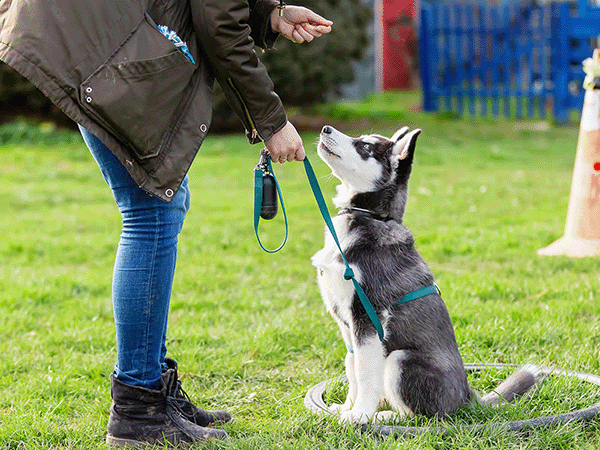
The Best Dog Trainers in the United States of 2025
This is a list of the top dog trainers in the United States, based on votes from the Sniffspot community and the general public.
The Best Dog Trainers in Seattle, WA of 2025
This is a list of the top dog trainers in Seattle, WA, based on votes from the Sniffspot community and the general public.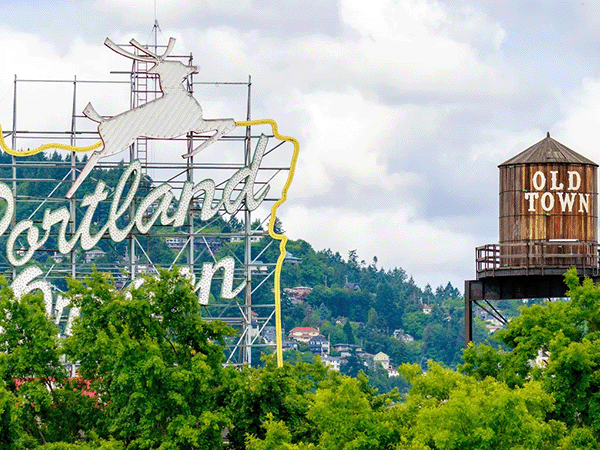
The Best Dog Trainers in Portland, OR of 2025
This is a list of the top dog trainers in Portland, OR, based on votes from the Sniffspot community and the general public.
The Best Dog Trainers in Los Angeles, CA of 2025
This is a list of the top dog trainers in Los Angeles, CA, based on votes from the Sniffspot community and the general public.
The Best Dog Trainers in New York, NY of 2025
This is a list of the top dog trainers in New York, NY, based on votes from the Sniffspot community and the general public.
City dog parks guides

Top 10 Indoor Dog Parks: A US Guide
Looking for a space to play with your dog no matter what the weather’s like outside? Look no further than our list of the best indoor dog parks in the United States! These climate-controlled spaces are growing in popularity as pet ownership increases throughout the country. As a bonus, many of them also offer dog training, boarding, grooming, or daycare services on the premises.

15 Best Dog Parks in the US: Public & Private
Searching for the best off-leash dog parks near you in the United States? Whether you're looking for public dog parks with open spaces or private, fully-fenced areas, this comprehensive guide has you covered. Discover top-rated parks across the country, plus essential tips on what to bring and what to expect for your next adventure.

Dog Parks Near Me: Las Vegas Edition
Looking for the perfect dog park near me in Las Vegas? You're in luck! This guide explores all the best options for your pup, from public dog parks to private dog parks near me on Sniffspot. We'll help you find the ideal spot for playtime, socializing, and fresh air. Plus, we'll cover essential etiquette and safety tips to ensure a happy visit for everyone. Get ready for some tail-wagging fun!

Best Sniffspot Locations: Private Dog Parks Near You
Looking for the perfect dog park? Whether you need a wide-open public space or a private, fenced-in spot, this guide will help you find the best dog parks across the US. We'll cover top-rated public parks, the perks of private dog parks, and even explore Sniffspot locations – giving your pup a safe and fun place to play. Ready to find your dog's new favorite spot? Let's go!

Sniffspot: Portland's Best Private Dog Parks
Ready to discover Portland's best dog parks? Whether you're looking for a public park or the unique experience of a private Sniffspot, this guide has you covered. We'll help you find the perfect spot for your pup, with tips on what to bring, how to prepare, and even understanding dog body language. Plus, we'll explore some top Portland dog parks, including public and Sniffspot options, so you can plan your next dog-friendly adventure in the City of Roses.
Dogs breeds

German Shepherd Dog: Breed Facts, Experience and Tips from 9K+ Owners
Discover the German Shepherd Dog, a breed celebrated for its intelligence, loyalty, and versatility. Known for its impressive size and smooth, graceful movements, German Shepherds excel in various roles, including as guide, therapy, bomb detection, and police dogs, while being a devoted family companion.

Labrador Retriever: Breed Facts, Experience and Tips from 9K+ Owners
Discover the Labrador Retriever, a breed celebrated for its playful nature, affectionate temperament, and trainability. Labradors are known for their friendly demeanor and adaptability, making them perfect family companions and versatile working dogs. As one of the most popular types of retrievers, Labs are ideal companions for various lifestyles and are recognized by the American Kennel Club (AKC) as an excellent breed for families.

Golden Retriever: Breed Facts, Experience and Tips from 9K+ Owners
Discover the Golden Retriever, a popular breed celebrated for its affectionate, playful, and trainable nature. Considered a large dog, Golden Retrievers were originally bred in Scotland for hunting and retrieving game beginning in the 1860s. Today, they're recognized by the Kennel Club and the American Kennel Club (AKC) as one of the most beloved companion dog breeds.

American Staffordshire Terrier: Your Complete Guide
Think American Staffordshire Terriers are tough? Think again. While their muscular build might intimidate some, these dogs are known for their playful and loyal personalities. This guide draws on the experience of nearly 10,000 AmStaff owners to reveal the truth about this often misunderstood breed. Want to learn more about caring for an American Staffordshire Terrier? You're in the right place.

Australian Shepherd Facts: Breed Info & Care Guide
Discover the Australian Shepherd, an AKC breed celebrated for its trainable, playful, and affectionate nature. Despite its name, the Australian Shepherd is actually a native breed to the United States, originally developed to breed on farms and ranches. Considered a medium dog, Australian Shepherds were bred for herding beginning in the 1950s. As one of the high-energy breeds, Aussies are known for their boundless energy and need for regular exercise, including aerobic exercise.
Top dog names in the US
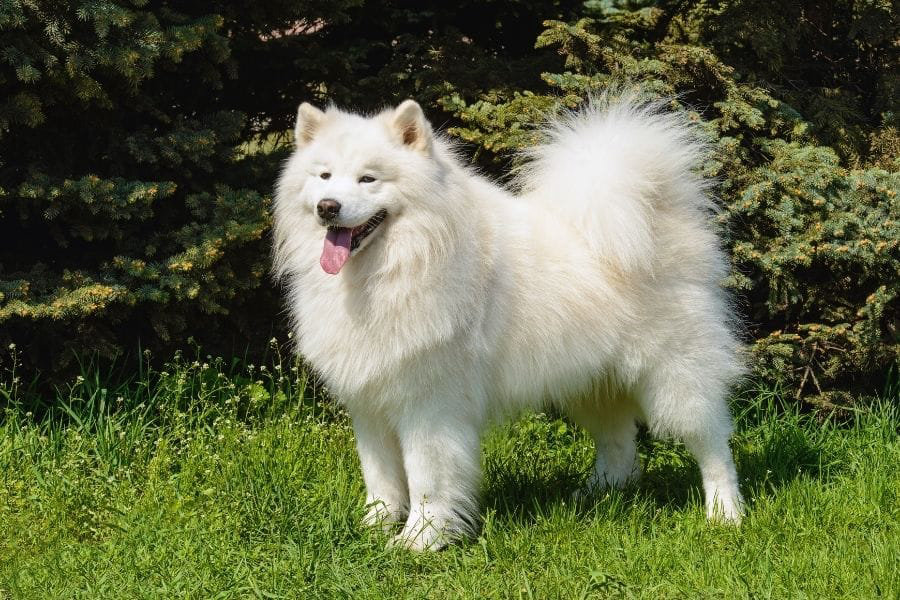
Top 1,000 Most Popular Dog Names
Looking for the perfect dog name for your new pup? We have created filterable lists of dog names from our database of hundreds of thousands of Sniffspot users. You can filter by gender, breed and state to find the most cute, unique and creative dog names.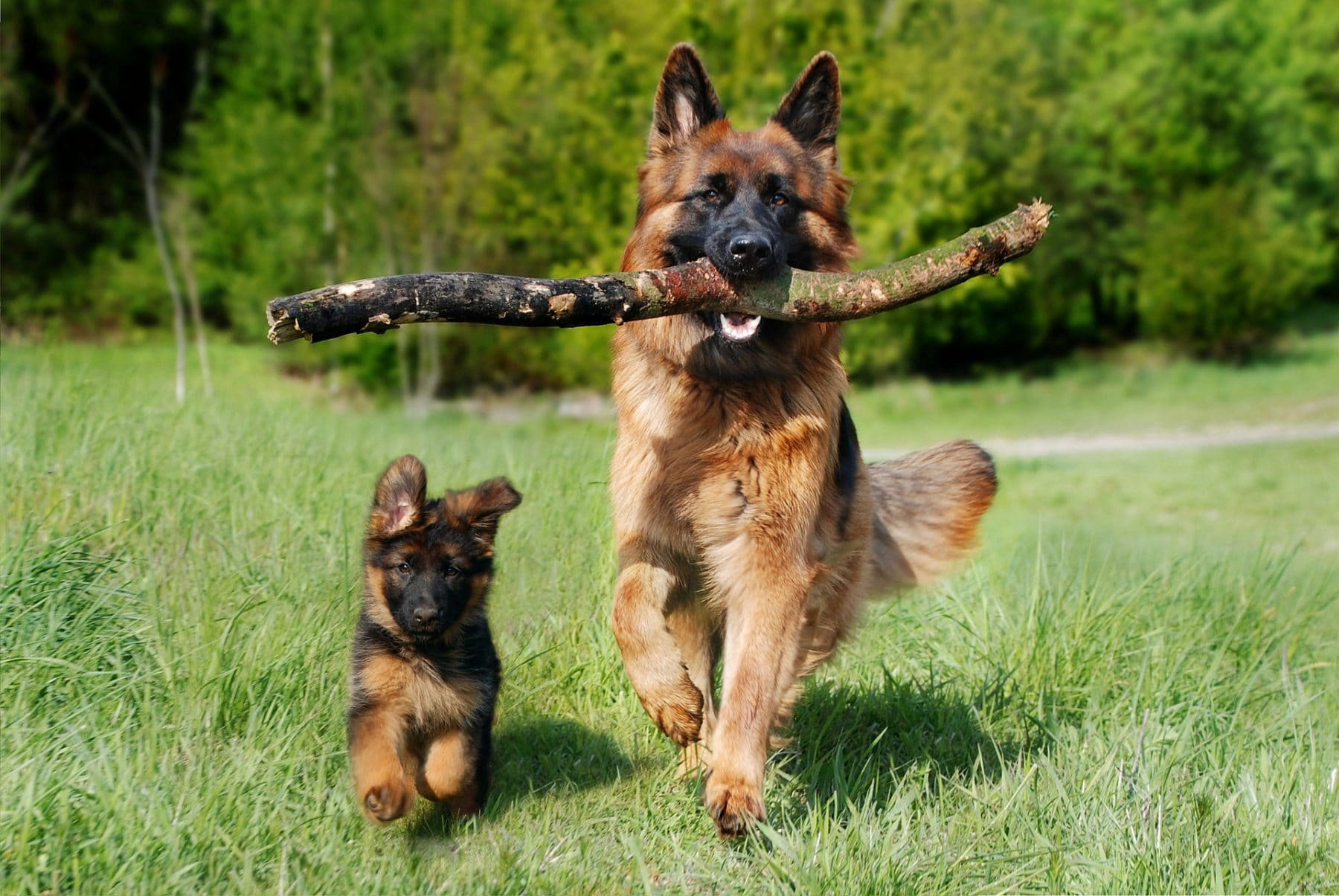
Most Popular Male Dog Names
Looking for the perfect dog name for your new male pup? We have created filterable lists of male dog names from our database of hundreds of thousands of Sniffspot users. You can filter by gender, breed and state to find the most cute, unique and creative male dog names.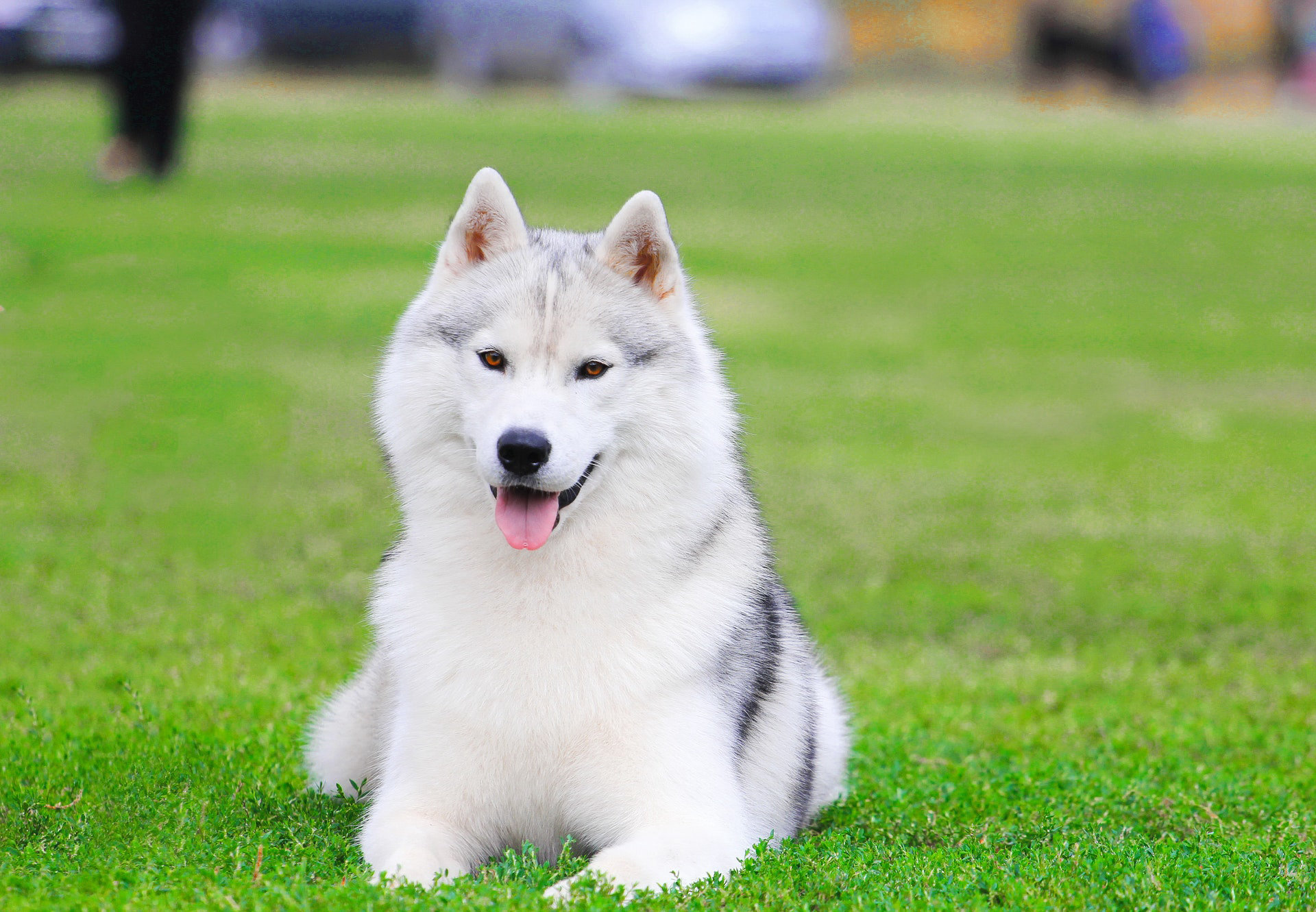
Most Popular Female Dog Names
Looking for the perfect dog name for your new female pup? We have created filterable lists of female dog names from our database of hundreds of thousands of Sniffspot users. You can filter by gender, breed and state to find the most cute, unique and creative female dog names.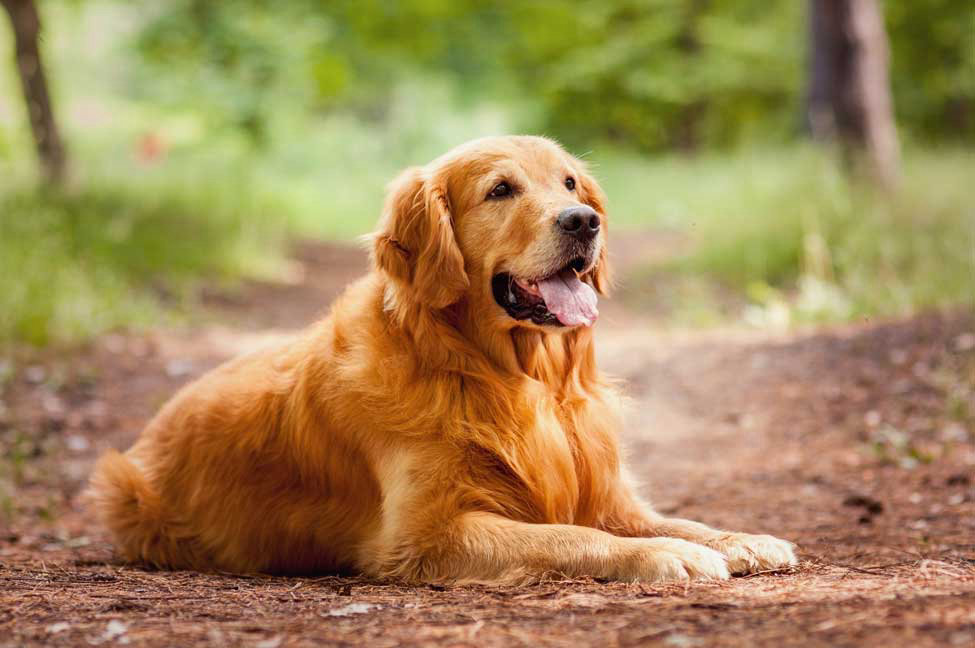
Most Popular Golden Retriever Names
Welcome to our comprehensive list of Golden Retriever dog names, curated from our vast database of Sniffspot users. Filter through hundreds of thousands of options by gender, breed, and state to discover the most adorable, original, and imaginative names for your beloved Golden Retriever.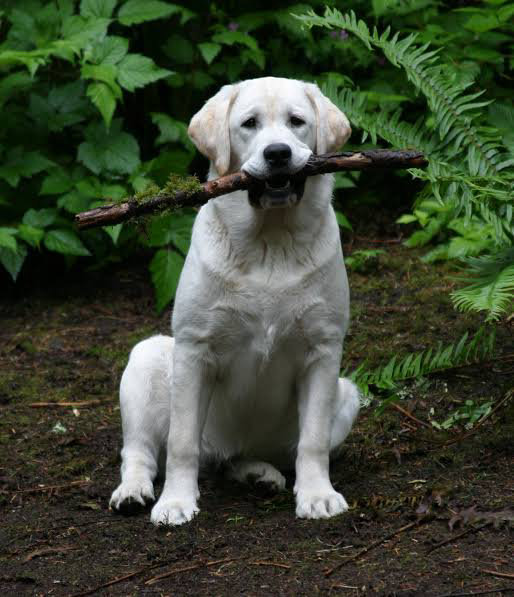
Most Popular Labrador Retriever Names
Welcome to our Labrador Retriever dog names page! Here you can browse through filterable lists of names for your beloved furry friend, ranging from cute and classic to unique and creative options. Our database of hundreds of thousands of Sniffspot users ensures you'll find the perfect name for your Labrador Retriever, whether you're seeking a name for a male or female, based on breed or state.
Top dog rescues in the US

The Best Washington Dog Rescues & Shelters in 2025
This list showcases the top dog rescues & shelters in Washington. These remarkable organizations have been recognized for their unwavering dedication to the well-being of countless dogs.
The Best Oregon Dog Rescues & Shelters in 2025
This list showcases the top dog rescues & shelters in Oregon. These remarkable organizations have been recognized for their unwavering dedication to the well-being of countless dogs.
The Best California Dog Rescues & Shelters in 2025
This list showcases the top dog rescues & shelters in California. These remarkable organizations have been recognized for their unwavering dedication to the well-being of countless dogs.
The Best Florida Dog Rescues & Shelters in 2025
This list showcases the top dog rescues & shelters in Florida. These remarkable organizations have been recognized for their unwavering dedication to the well-being of countless dogs.
The Best New York Dog Rescues & Shelters in 2025
This list showcases the top dog rescues & shelters in New York. These remarkable organizations have been recognized for their unwavering dedication to the well-being of countless dogs.










